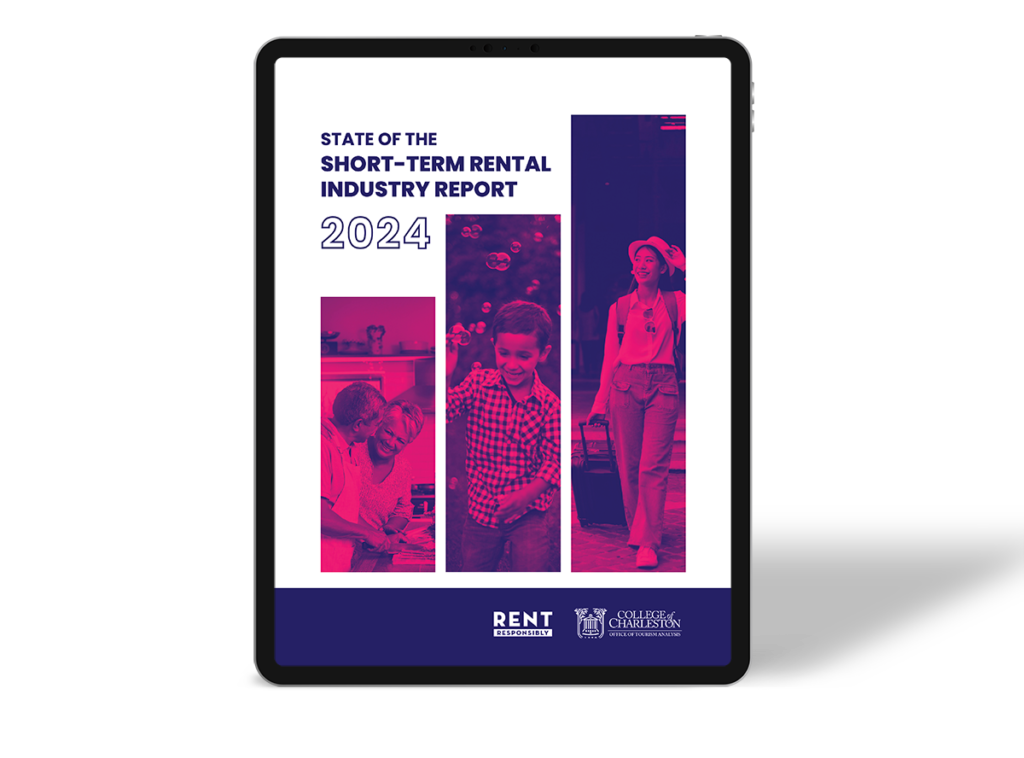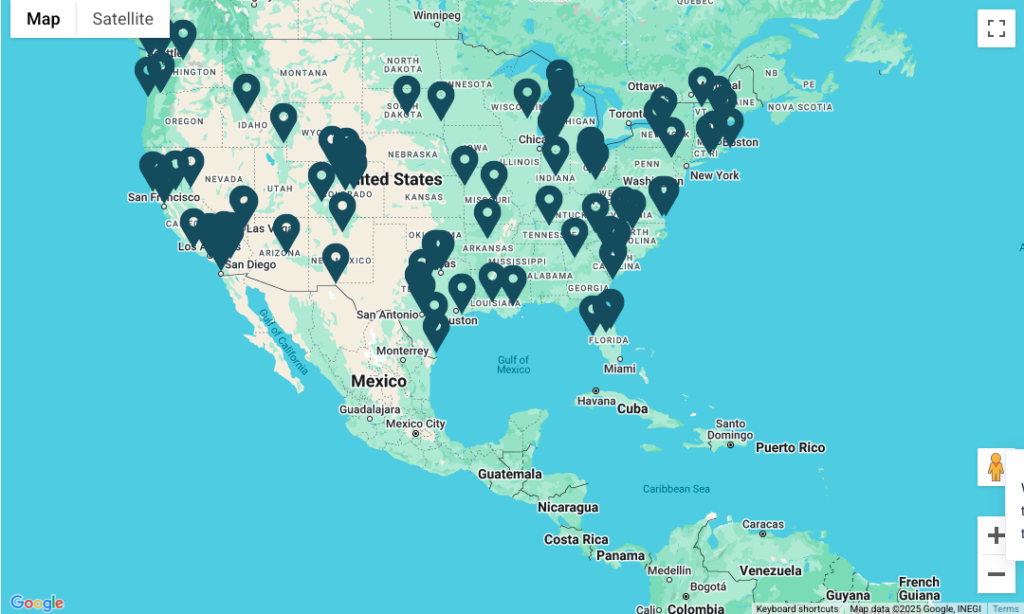Updated on January 17, 2025
Short-term rental regulations evolve each year.
“It seems like the cool thing to do right now is to create regulations on the vacation rental industry,” said Julie Koster, Executive Director of the Colorado Lodging and Resort Alliance (CLARA) and the Summit Alliance of Vacation Rental Managers (SAVRM).
Since 2021, the number of total proposed state STR bills has increased by an average of 67 each year, and one in five were enacted, according to legislation-tracking software Quorum. If these trends continue, states will consider an estimated 328 bills on STRs in 2025 and pass 66 of them – that’s an average of almost seven proposed and at least one passed in each state.
Locally, among municipalities with a population of 5,000 or more, the total number of council meetings* on STRs has increased by an average of 1,278 per year as of November 2024, according to Quorum. They peaked at an all-time high of 579 meetings in September 2024 alone. If these trends persist, an estimated 5,857 council meetings will have STRs on the agenda next year.
Keeping up with all of this and engaging in advocacy are pivotal to safeguarding your STR business and supporting the industry as a whole.
In a panel session at the RR Summit: Rise and Thrive and a Rent Responsibly workshop for alliance leaders in December, experts discussed emerging trends in STR regulations, provided effective advocacy strategies, and outlined case studies from several states, including Colorado, Maine, Michigan, and North Carolina, plus the U.S. territory of Puerto Rico.

What was the biggest takeaway from these sessions? Regulations will happen in your community and change the landscape of your business, and it’s up to you to help shape them into something that works for everyone.
“Short-term rental regulations aren’t just policies–they’re opportunities to share our stories, educate others, and shape a future that works for everyone,” said Dana Lubner, Director of Community Development at Rent Responsibly. “The best way to ensure you have a seat at the table is to bring your own chair. When you show up and engage, you become part of the solution–and that’s how we protect our communities and the vital role STRs play in them.”
Shift toward statewide regulations
An emerging trend in the STR industry is a shift from local to state-level regulation. Sophie Doumit, a senior government affairs specialist at Expedia Group, highlighted that states like Arizona, Colorado, Florida, Maine, and Michigan are increasingly introducing broad policies, including statewide registration systems.
This trend surfaced because city and county governments struggled to enforce rules, former local officials brought STR policies to state legislatures, and states eyed new streams of tax revenues, Sophie said.
She encouraged hosts and managers to monitor both state and local legislative activity, as these regulations often intertwine.
“This year alone, I think we saw around six to seven statewide bills in that arena [of statewide registration],” she said. “And that’s not something that I see slowing down.”
North Carolina, which has had a statewide vacation rental act since 1999, has seen legislative efforts to weaken protections for short-term rentals.
“The Act has definitely stood the test of time, and if our local governments would quit trying to supersede and regulate more of the act, it probably would work really well,” said Randall Blankenship, Treasurer and Advocacy Chair of the new North Carolina Short-Term Rental Alliance. “However, we have a growing number of municipalities and townships that want to overregulate, overstep, and put egregious bans, or just regulations, on short-term rentals.”
North Carolina Sen. Tim Moffitt has introduced legislation, backed by the State Association of Realtors, that would remove the ability for local municipalities to further regulate or ban short-term rentals.
Taxes and fee proposals

Many states, such as California, Colorado, Maine, and Michigan, are pushing for higher taxes and fees on short-term rentals, justifying the charges largely as a way to raise money for affordable housing projects. According to the 2024 State of the Short-Term Rental Industry Report, four in five local government respondents indicated affordable housing was an issue in their jurisdiction.
Maine
Fred Cercena, President of the Vacation Rental Professionals of Maine, shared how advocacy efforts defeated two bills to impose local lodging taxes or fees in that Northeast state: LD 1298 and LD 1893. The state constitution, which reserves taxation authority for the state, was pivotal in stymying the bill. However, Fred cautioned against complacency, citing emerging threats like 30-day minimum stay requirements and rental caps.
Michigan
Michigan illustrated both the registry and excise tax trend by introducing House Bill 5438 earlier this year. The bill would have established a statewide STR registry and levied a 6% excise tax on STR occupancy.
The bill served as a catalyst for the formation of the Michigan Short-Term Rental Association, said President Kate Stoermer.
“Our first official act as an entity was to testify against this bill,” Kate said. “It’s the third such bill that has been intended to try and regulate at the state level in Michigan. The first one came out in 2017, and none have been successful to date.”
Vacancy Taxes and Fees – Multiple States
Vacancy taxes or fees, aka vacant home taxes, have become the “hottest thing in lawmaking” in 2024, said Julie during the alliance workshop.
Vacancy taxes were discussed on the Hawaiian island of Maui. In San Francisco, a recent court ruling invalidated a vacant homes tax and declared it unconstitutional.
Voters in South Lake Tahoe, California, overwhelmingly defeated a vacancy tax on their ballot in November 2024. That ballot measure would have imposed a tax of up to $6,000 on homeowners who stay in South Lake Tahoe less than 182 days a year.
Inconsistent or discriminatory local STR policies
In states (or territories) with no baseline STR regulations, local governments are considering ad hoc ordinances seeking to solve noise, parking, trash, and safety challenges.
However, some small municipalities have adopted discriminatory ordinances based on anecdotal complaints rather than data analysis, Kate said.
Nuisance complaints are a common trigger for regulations, despite the majority of local jurisdictions (64.1%) reporting 10 or fewer verified complaints about STRs in the previous 12 months, according to the 2024 State of the Short-Term Rental Industry Report.
“Smaller municipalities are borrowing each other’s ordinances, which are not great to begin with, and then they’re just responding to this instead of doing a thoughtful review of what’s happening. And so they’re making regulations based on misinformation and a silent perspective because often, the short-term rental owners don’t even know those conversations are happening,” Kate said.
Inconsistent rules across Puerto Rico’s 78 municipalities create confusion and enforcement limitations, said Alma Bair, Co-founder and Co-president of the Viva Puerto Rico Short-Term Rental Alliance.
“You can imagine the nightmare of having 78 different regulations and tax structures within such a small island (3,400 square miles),” she said.
Affordable housing drives regulations
Affordable housing concerns were a major motivating factor in STR regulation proposals, especially in tourism-centered communities like Buncombe County, home to Asheville, North Carolina, where an outright ban was proposed.
Interestingly, according to the 2024 State of the Short-Term Rental Industry Report, the solutions government respondents found most effective focused on opening new space to build, subsidizing the cost to build, and creating more favorable zoning policies; restricting STRs was deemed less effective.
STR advocates in Buncombe County are working to debunk misconceptions that STRs significantly contribute to housing shortages by presenting data-driven arguments to local officials, Randall said. They pushed for a task force to study the issue and recently engaged a public affairs firm to help educate the public on the value of short-term rentals.
“36% of our overnight stays in Buncombe County were short-term rentals,” Randy said. “This is a massive income driver for our region.”
The regulatory threat was also an impetus to formalize the North Carolina STR Alliance, he said.
Read more: Affordable housing vs. STRs: What does the data say?
What can you do?
Sophie and Julie gave tips on how hosts, managers, and other STR supporters can help guard against excessive regulations.

- Join an alliance in your area.
- Sign up for updates from Vrbo, Rent Responsibly, and your local governments to stay current.
“To be a part of the conversation, you really need to understand what’s being talked about, what’s at the table, locally, statewide, county-wide, for you,” Sophie said.
- Sign up for news alerts on short-term rentals and vacation rentals on Google Alerts or another news alert service.
- Build your network outside of the STR community. Get to know local lawmakers, local members of the media, and local businesses that benefit from short-term rentals. Tell them your personal STR story – how you got into hosting and how it affects your life and your community.
“This is how you are going to win every single day, and this is how you will begin to shape the future of public opinion around vacation rentals,” Julie said.
- Show up and speak at public meetings.
“I can guarantee that your local elected officials want to hear from a local voice a whole lot more than they want to hear from a national tech company,” Sophie said, “so show up; be a part of the conversation … because your voice is really the one that can effect change in your community.”
- Participate in local elections. Get to know local candidates and their position on STRs, and enlist the help of your alliance to support candidates who have a fair outlook on STRs, Julie recommended.
- Copy and paste strategies from other alliances that successfully defeated unfair STR regulations, she advised.
For more case studies and tips on responding to these trends in your community, log into the RR Network and watch the full replay of Panel: What’s Next in STR Regulations under “Replays & Downloads” and then “RR Summit 2024 Replays & Downloads.”
…


